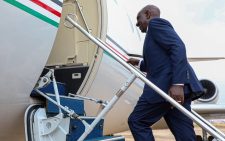Kenyans must speak out on religion bill

As was widely expected, the Religious Organisations Bill of 2024 drafted by Tana River Senator Danson Mungatana seeking to provide a regulatory framework for the operations of Faith-based societies has attracted wide condemnation.
Criticism is coming from none other than churches, which previously received greater flak for operating without any regard to established regulations.
Most church leaders, mainly pentecostals and evangelicals, claim that Mungatana’s bill threatens to criminalise the preaching of the gospel by imposing a penalty of up to Sh10 million or imprisonment of up to five years or both for indoctrinating others. They claim this will restrict individuals from freely preaching on radio or TV or conducting “crusades” (or religious drives).
Church leaders opposing the bill also argue that it will grant counties the authority to manage and interfere in the internal affairs of churches, and that this could allow politicians to intrude into church matters and intimidate pastors who speak out on governance issues.
There have also been concerns from some quarters that the bill, if enacted into law, could exclude pastors from church management and operations thus enabling politicians, through county governments, to appoint officials to oversee church operations.
Ironically, the noise is only coming from the so-called Biblicist churches, while more well organised mainstream groups like Catholics, Anglicans, Lutherans, PCEA, Seventh-Day Adventists and Baptists seem to have no qualms about the proposals.
The need to restore order in churches has never been more urgent, particularly coming in the wake of the massacre in Shakahola that left more than 400 people dead.
Kenya needs an honest conversation about how to regulate both the spreading of the gospel and worship in churches. As it is at the moment, churches have miserably failed to institute self-regulation mechanisms, leading to cases of indoctrination, false teachings and prophets, deception and all forms of demagoguery.
Though Mungatana may have jumped the gun by preempting the government’s intention, Kenyans should be encouraged to actively participate in the debate on how churches should operate.
Equally, the government should move swiftly and implement the recommendations made by the Rev Mutava Musyimi task force on religious organisations.
While we agree that the fundamental freedoms of religion and association should be safeguarded, it is important to balance the enjoyment of these rights with preserving public interest and safety.












